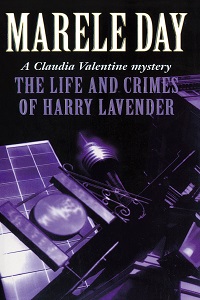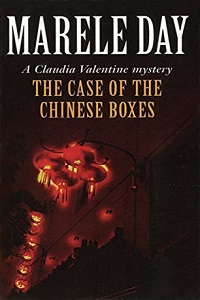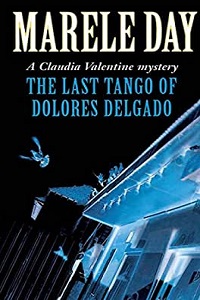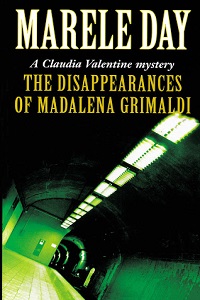1. Congratulations on your recent Davitt Award win with Undertow, a great achievement for a debut novel. Many would think that an American hotshot lawyer is an unusual protagonist for an Australian author, can you tell us how David Cavanaugh was conceived and what are the main challenges when creating a male/Boston-based/attorney?
Thanks for the kind words! Winning the Davitt was a huge honor, the gang from Sisters In Crime are terrific, they spend their lives supporting crime writers like me which made the win all the more significant given I have so much respect for Carmel Shute and her team. Yes, I guess it is a little unusual for an Australian girl to choose a ‘hotshot’ Boston defense attorney as her main protagonist, but to me the choice was kind of obvious. My background is in TV publicity and programming and as such I spent years working on the Australian launch, scheduling and promotion of shows like Law & Order, NYPD Blue, The Practice, Alias, 24 and so forth. The people who write these quality American dramas, some of whom I was lucky enough to meet, became my inspiration.
Boston is such a great city. I go there at least once a year for research and have a team of fabulous friends/ contacts there now. The city is so beautiful – it’s Harbour, parks – and its history, along with its ‘liberal’ politics but conservative past, lends itself to a great backdrop for action. Besides all that, David is still kind of your likeable ‘every guy’ who surrounds himself by similarly motivated people who juggle the frustrating nuances of the law (and are placed in extraordinary situations) with their every day lives. Of course my main aim is to write novels that take readers on a rollercoaster ride of the unexpected – and leave them stunned by a cliffhanger ending which, I hope I do!
2. Alibi is the 3rd David Cavanaugh novel, which will be published by Pan Macmillan in April. What's in store for Cavanaugh this time?
I have always been fascinated by the world of the Ivy League elite. There is something about the young, wealthy, connected element of the American Ivy League system that lends itself to drama and intrigue (not to mention the picturesque settings it provides!). ALIBI is set largely in a fictional Ivy League University I have called Deane, which was modeled on a series of respected Ivy League establishments such as Harvard. This time David has to defend a good looking, athletic, smart, rich, law student by the name of James Matheson who is arrested for the murder of a beautiful Japanese-American multinational heiress by the name of Jessica Nagoshi. Jessica’s twisted body is found in the greenhouse of her father’s extensive Wellesley Estate and Homicide Chief (and David’s friend) Joe Mannix finds it almost impossible to link the clues together.
To make things more complicated, David has a past relationship with James, the young man in fact reminds David of himself when he first set out on a career in law – dedicated, determined, but still idealistic enough to believe in that justice will prevail.
This one is full of twists and turns and hopefully enough shocks in the final courtroom showdown and beyond to keep readers riveted – that was my aim in any case.
On top of all that I develop the personal relationships that have been growing over UNDERTOW and GOSPEL, Sara is still very much by David’s side and plays a big role when it comes to the impact of the finale.
3. Do you read much Australian crime fiction? Can you give us a few standouts that you've read recently? What do you think of the crurrent state of the Australian crime fiction scene?
Well, I love Crime Fiction of all forms. So yes, I read the Australian novels and also, given my setting, plenty of US crime fiction as well. P.D Martin is a friend of mine and I have enjoyed all of her Sophie Anderson novels and I enjoy Angela Savages and Katherine Howell. On the US end I love Lee Child, Robert Crais, Richard North Patterson, John Grisham, David Baldacci and Dennis Lehane. As for the Aussie scene, I think the quality and output of Australian crime fiction writers is fantastic. It’s a thriving, growing entity which is great.
4. What do you think could be done to better promote Australian authors either at home or abroad (or both)?
Gosh, this is so difficult. I spent many years working in the ‘dog eat dog’ world of TV, but I think ‘getting yourself out there’ in publishing is even harder. I am lucky enough to have a US publishing deal but achieving this was no easy task. First you need a good agent, preferable based in NY, and then they have to sell your work to the big publishers. My decision to set my novels in Boston was admittedly, at least partially, a commercial one, as I wanted to appeal to an international readership. But it also meant I put the extra pressure on myself to be as authentic as possible – it is my responsibility to make my characters authentic which is why I have the transport myself culturally every time I sit down to write. I do not have experience with trying to sell novels set here in Australia to overseas markets but I can imagine this is doubly hard. It is a very small industry and breaking through is tough.
Promoting yourself locally is also very difficult, there are only a few avenues of promotion and these outlets are bombarded with local publishers trying to market their own books (on top of all the imported stuff). If anything I still believe that ‘word of mouth’ is incredibly important – overall I think it takes patience and persistence and a determination to establish yourself.
5. If your fictional character could meet any fictional character who would you like it to be and why?
Wow! What a great question! Hard to answer, not because I can’t think of one, but because I can think of too many. I would love David to meet Patrick Kenzie and Angie Gennaro from Dennis Lehane’s Patrick Kenzie series. Kenzie is a hot shot PI who operates in Boston so it would be easy for them to cross paths. I would also love David to meet Jack Reacher. Reacher is one of my all time favourite fictional characters (created by the amazing Lee Child). Maybe the nomadic Reacher could be passing through Boston when a mysterious murder occurs and David and Reacher have to solve it together.
Now, if you really want to get me going I would (given my background) also love for David and Sara and Joe and the rest of ‘my’ gang to meet the TV ensembles from Boston Legal or The Practice or even West Wing. But give me a crisis that David and Jack Bauer from 24 have to battle together and I am in heaven!
Sydney Bauer is the author of two legal thrillers featuring Boston attorney David Cavanaugh, which is about to grow into 3 with the impending release in April of ALIBI. You can get much more information by visiting Sydney Bauer's website.






